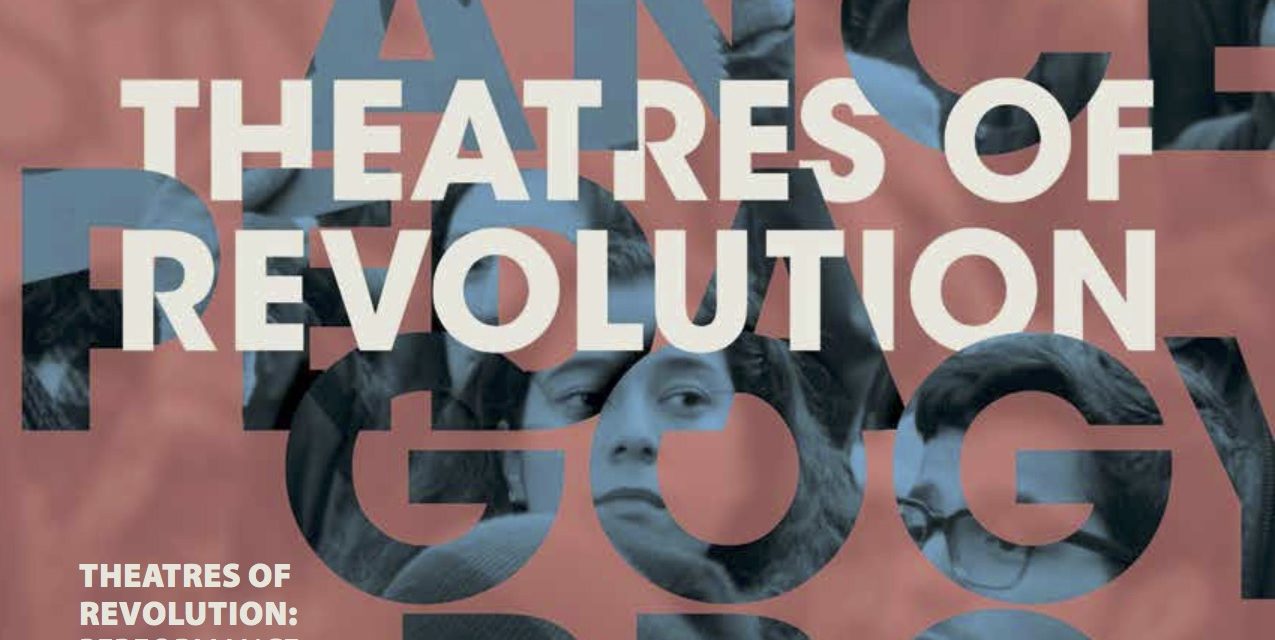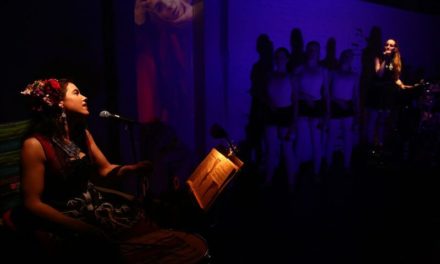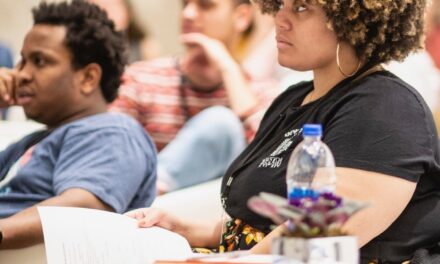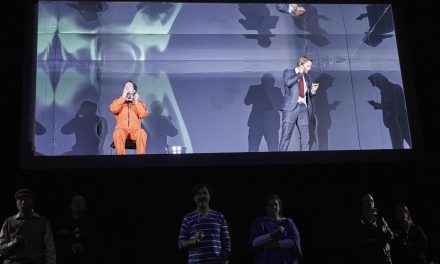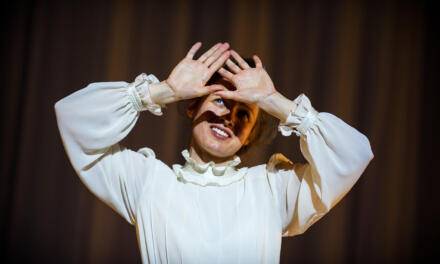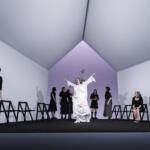Since my own “debut” in the 2011 Dramaturgy Debut Panel with my dramaturgy work on Yale Repertory Theatre’s Eclipsed by Danai Gurira, ATHE (Associations for Theatre in Higher Education) has become a summer event I look forward to every year, and the Dramaturgy Focus Group has become a home where I always feel welcome. The whole conference is an overwhelming experience, with over 300 sessions, let alone plenaries, business meetings, workshops, and performances. Yet, over the years, the Dramaturgy Focus Group has not only helped me navigate the conference but also provided opportunities to present my artistic and scholarly achievements. Seeing the most current works of my peers has helped me keep up with what’s pertinent or trending. The networks and friendships formed at panels, or in the hallways, have led to further collaborations and expanded the cycle of support beyond the conference. Attending my sixth ATHE conference this year, with more responsibilities as one of the members-at-large for the Dramaturgy Focus Group, I still found myself looking for opportunities for growth as well as elements of surprises, just like my first conference in Chicago. This article examines the Dramaturgy Focus Group at the annual ATHE conference, which took place at the Westin Boston Waterfront in Boston, MA, from August 1st to 5th, 2018.
The Dramaturgy Focus Group operates in conjunction with LMDA (Literary Mangers and Dramaturgs of the Americas), which usually holds a conference about a month before ATHE. While LMDA serves dramaturgy with a focused attention to the practices of dramaturgs and literary managers, ATHE has become a significant incubator for dramaturgy, where the many functions of it can be presented, tested, and practiced in the broader context of theatre practice and scholarship. This year the Dramaturgy Focus Group addressed the conference theme, “Theatres of Revolution: Performance, Pedagogy, and Protest,” with panels, presentations, performances, and discussions that encompassed, challenged, and expanded the contemporary practices of dramaturgy and looked ahead at new possibilities.
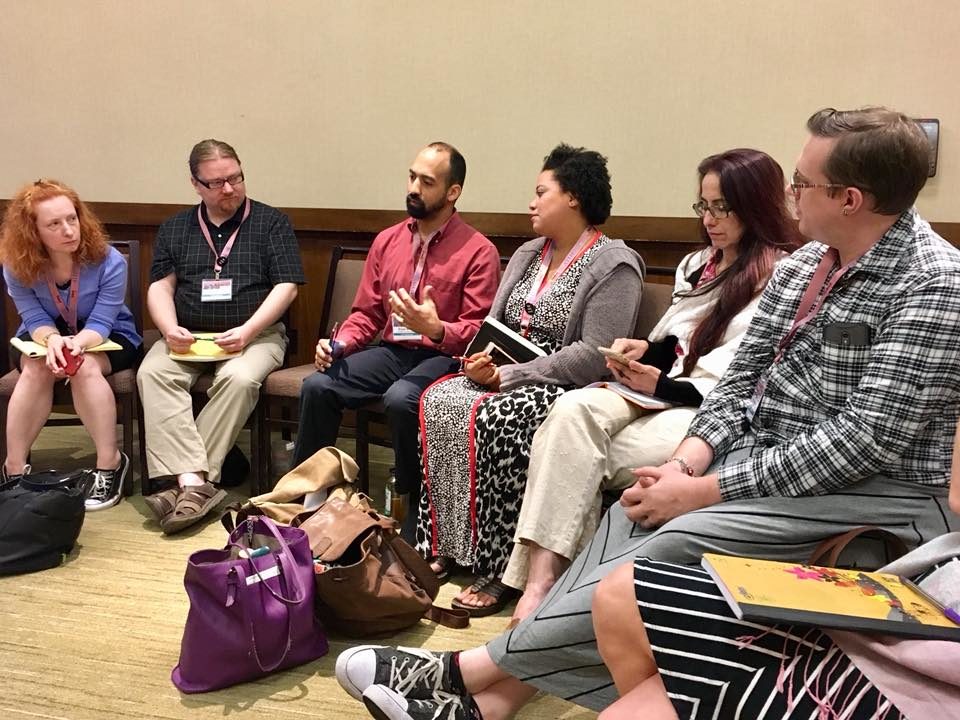
Dramaturgy Focus Group Business Meeting, from left to right: Susanne Shawyer, Dan Smith, Bryan Moore, Martine Kei Green-Rogers, Olga Sanchez Saltveit, “C” Heaps. Photo: Shelley Orr.
The overall narrative of the Dramaturgy Focus Group, which offered seventeen panels and sessions, can be summarized as: Orienting dramaturgy in the conference theme and site; Examining new practices of dramaturgy in pedagogy and scholarship, with attention to pertinent social issues; And envisioning and contemplating how dramaturgy will serve ATHE in Orlando in 2019 and beyond. The pre-conference event, “A Walking Dramaturgy of Boston’s Heritage Trails,” placed us in the broader landscape of Boston’s landmarks including the Freedom Trail, the Black Heritage Trail, the Boston Women’s Heritage Trail, and the Irish Heritage Trail. With our feet on the ground, this event initiated the conference with the questions: What kind of questions and insights does the conference site offer us?; And how does orienting ourselves help us look forward? Boston was further analyzed dramaturgically in the panel “Sites of Performance and Protest: Dramaturging Public Space in Boston,” which illuminated the historical significance of sites including Harvard Yard and South Boston High. The panel “Love That Dirty Water: Boston as Home for Playwrights and New Plays” invited local playwrights and dramaturgs to talk about the new play ecosystem in Boston. As such, dramaturgy served Boston on a full scale, from historical analysis to current practices.
The conference theme of performance, pedagogy, and protest was reflected in several dramatugy panels, which approached various pertinent social issues via practice and pedagogy. A few panels addressed the growing sensitivity around violence in theatre: “Traumas’ Dramaturgies” explored the blurring boundaries between fiction and nonfiction in documentary theatre dealing with trauma; And “Teaching and Resisting Rape Culture” identified strategies for the discussion and depiction of sexual violence in performance. Panels also examined practices with an objective toward social change, such as methodologies of post-show audience engagement that can inspire social action, devising for social change, teaching and performing Brecht in the contemporary political climate, and staging solo performances about immigration, sexuality, and incarceration.
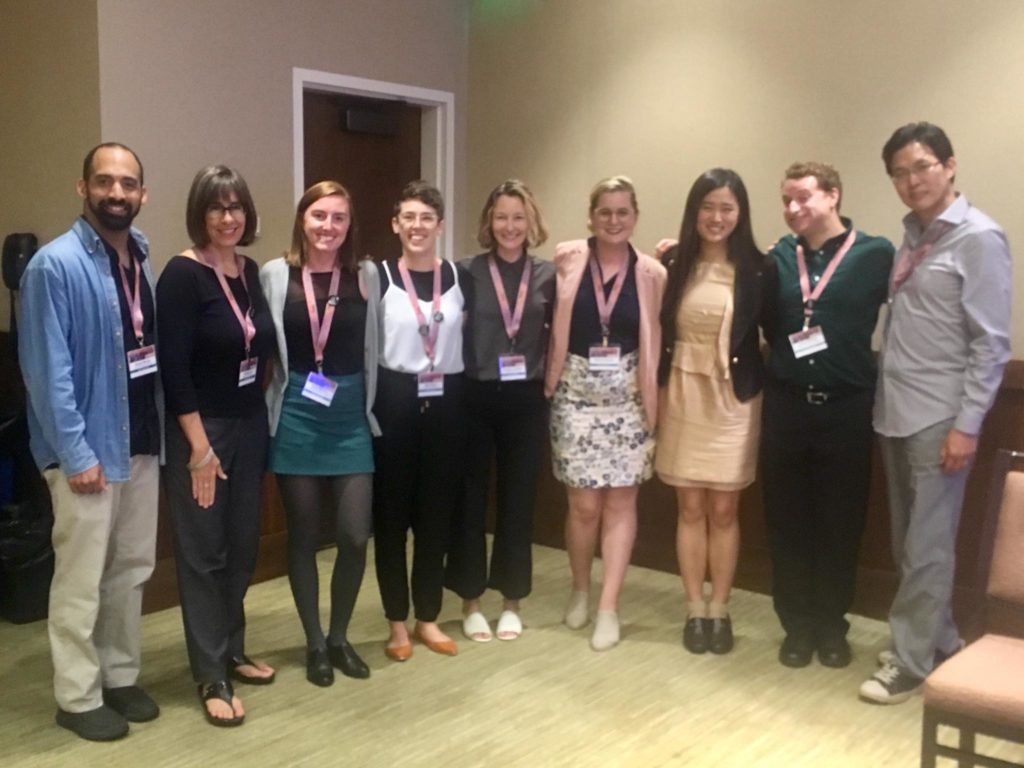
Past and Present Dramaturgy Debut Panelists, from left to right: Bryan Moore, Shelley Orr, Kara Mavers, Bex Orton, Christine Gwillim, Sierra Carlson, Yan Chen, Jacob Hellman, Walter Byongsok Chon. Photo: Martine Kei Green-Rogers.
Current and new practices of dramaturgy were also highlighted across panels and presentations. Several dramaturgs played key roles in developing new ten-minute plays for the New Play Development Workshop and the staged reading of a new translation of The Mammoths from Os Mamutes by Jô Bilac for the translation workshop. The Dramaturgy Debut Panel continued the tradition of “debuting” emerging dramaturgs, whose innovative practices included a Wikipedia Edit-a-Thon of women in theatre, transcultural dramaturgy across China, the U.S., and Germany in The Ugly One, and collaborative dramaturgy strategies for a feminist production of Enron. Radical approaches to the application of digital theory to contemporary performance making were shared and discussed in the multidisciplinary roundtable “Bridging the Digital Divide.” “Revolutions in Dramaturgy: Foundations and Futures” critically examined foundational dramaturgical texts, including Lessing’s Hamburg Dramaturgy and LMDA’s manifestos, and envisioned the next revolution in dramaturgy with a collectively written manifesto.
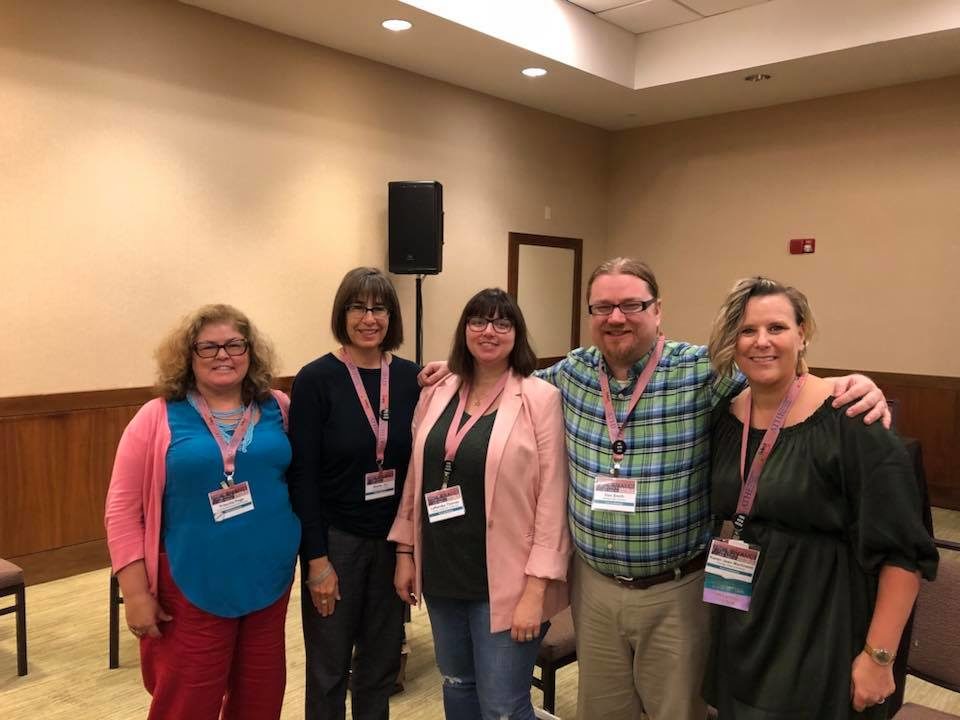
“Revolutions in Dramaturgy: Foundations and Futures” Panelists, from left to right: Priscilla Page, Shelley Orr, LaRonika Thomas, Dan Smith, Karen Jean Martinson. Photo: Bryan Moore.
The depth and breadth of discussions, presentations, and practices offered by the Dramaturgy Focus Group throughout the conference marked the growing appreciation of dramaturgy in the field, and the excitement was reflected in the planning for next year’s ATHE conference in Orland, FL. The connection between next year’s conference theme, “Scene Changes: Performing, Teaching, and Working through the Transitions,” and the site is aptly noted in the remark of Andrew Gibb, the Vice President for Conference 2019: “From colonial wars to contested elections, Indian Removal Acts to mass shootings, urban experiments to moon shots – Orlando offers to the visitor a panoramic background of troubled pasts and future visions, prompting us to consider the possibilities and consequences of our scene changes.” During the second Dramaturgy Focus Group business meeting, dramaturgs contemplated what it would mean to return to Orlando since the last conference there in 2013. Many questions arose. How do the changes in Orlando since 2013 affect how we view the city, how we situate ourselves there, and what we bring to it? What should we be mindful of as we prepare our return? And what should we look forward to in the “scene changes” in dramaturgy, and how could our efforts and achievements bear fruit in Orlando? There is a bright prospect that these questions will be answered and further explored, hopefully with pleasant surprises, once the Dramaturgy Focus Group reunites after a year’s growth.
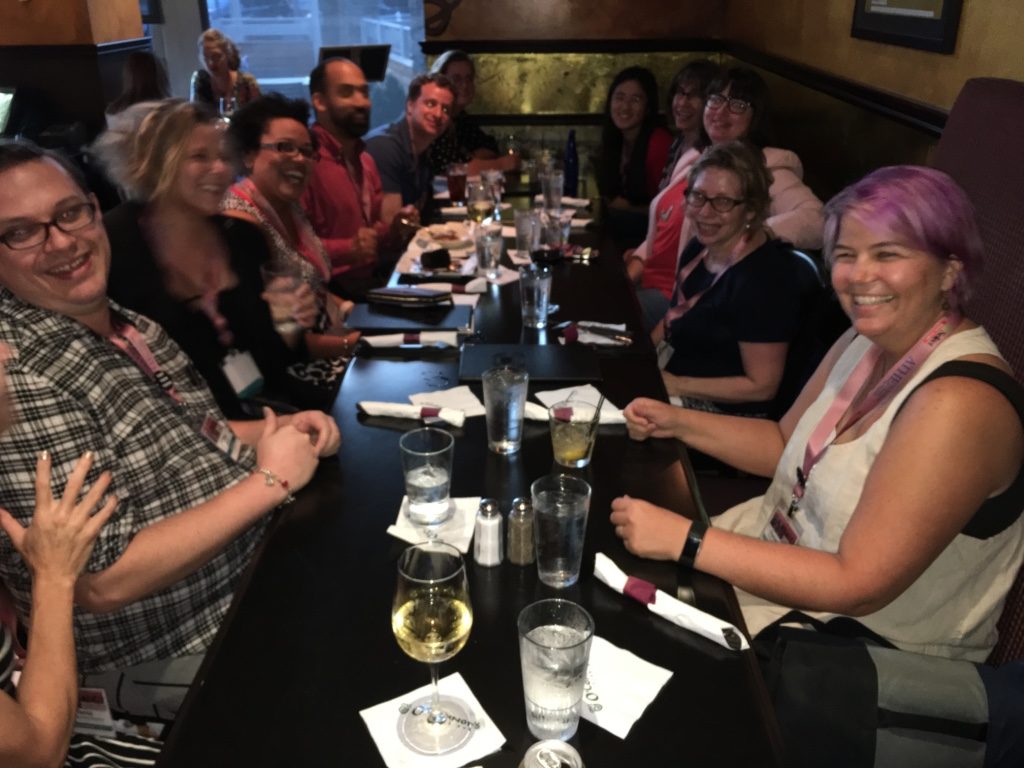
Dramaturg’s Night Out. Photo: Walter Byongsok Chon
This post was written by the author in their personal capacity.The opinions expressed in this article are the author’s own and do not reflect the view of The Theatre Times, their staff or collaborators.
This post was written by Walter Byongsok Chon.
The views expressed here belong to the author and do not necessarily reflect our views and opinions.

